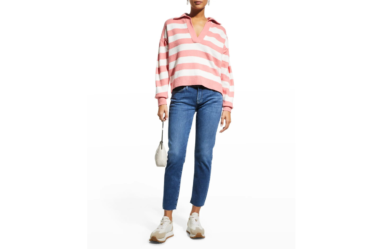
Subscribe to the BoF Podcast here.
Background:
When it comes to sustainability, the fashion industry has long relied on self-regulation rather than external enforcement. But oftentimes, these self-defined targets create a “convenient fantasy,” Blackrock’s former chief investment officer of sustainable investing Tariq Fancy said in a talk at BoF VOICES 2022. This gives the appearance of positive movement, but not necessarily real progress. Indeed, activists like Fancy, as well as consumers and investors are calling for government regulators to intervene.
“Many companies are playing dirty,” he said. “It’s time we called in the refs.”
This week on The BoF Podcast, BoF’s chief sustainability correspondent Sarah Kent speaks with Fancy; Maxine Bédat, director of the New Standard Institute; Baroness Margaret Omolola Young, activist and a member of Britain’s House of Lords and Ken Pucker, former chief operating officer of Timberland to explore the role that regulation can play in creating a more sustainable fashion industry.
Key Insights:
- Fancy believes we are past the point that self-regulation is acceptable. Companies should no longer hold responsibility over their own regulation as the resulting action, if any, is not enough. “It has to be mandatory,” Fancy said. “Then we actually have a chance of turning the tide this decade.”
- To move past greenwashing, “governments need to take bold action, and we need to tell them to be bold at the ballot box and at every opportunity,” says Baroness Young.
- “Green bonds” and ESGs need to be left behind. Fancy has identified ESGs specifically as a point of disillusion, saying that it essentially is a way for the fashion system to “paint itself green.” “This ESG stuff can actually be harmful if people don’t know its BS,” Fancy says. “[It’s] a convenient fantasy … where the world corrects itself and no sacrifice is required.
- The US has paved the way with the proposal of the New York Fashion Act. The legislation proposed in New York would see “basic guard rails,” says Bédat, setting minimum environmental standards for all companies, with revenue over $100 million, trading in the state.



